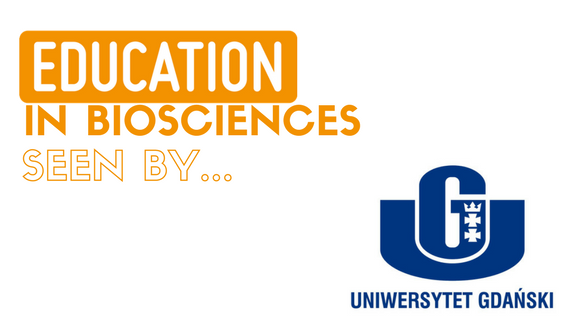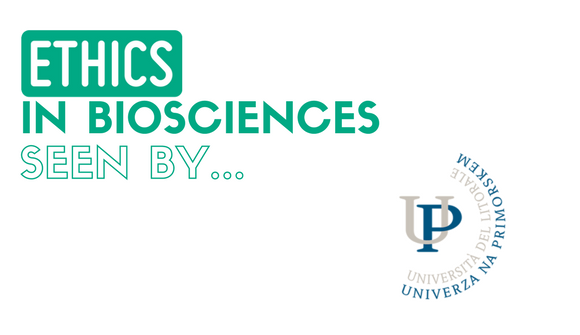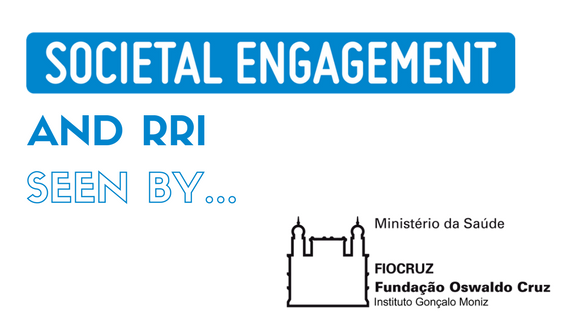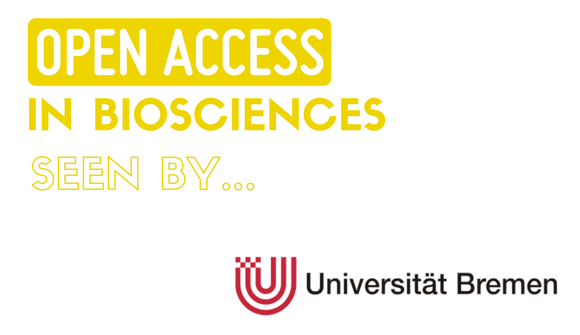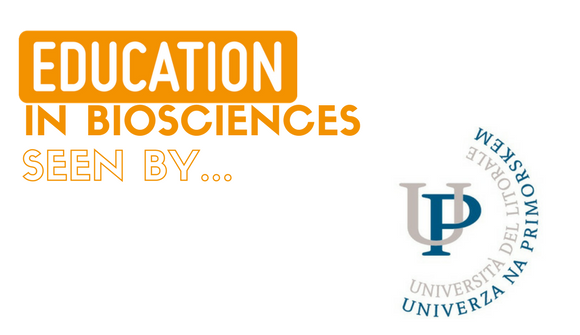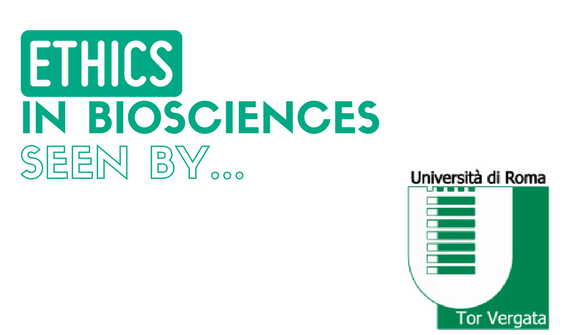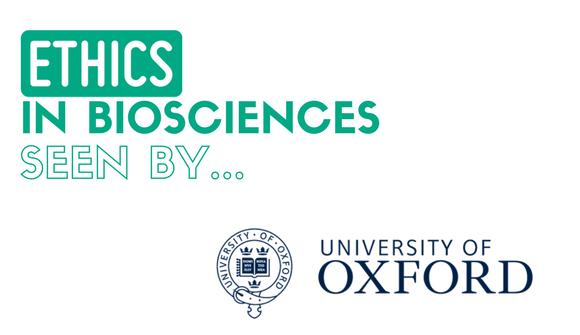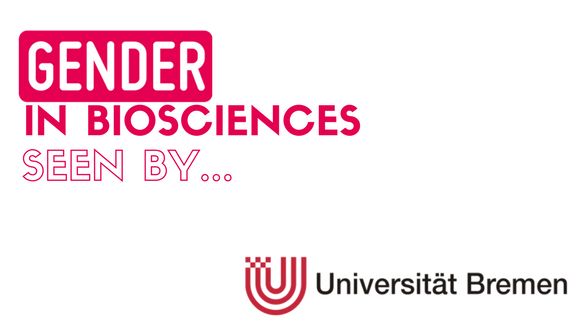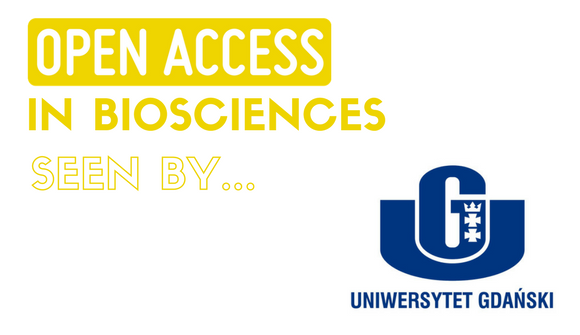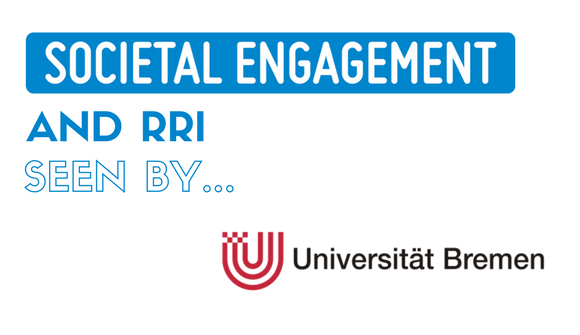How do you understand Education in biosciences research? Education is a vital aspect of the Responsible Research and Innovation concept. In order to build responsible relations with the society, there is a need for a certain level of science literacy in the society. On the one hand the scientists need to be aware of the need of communicating with other members of society, on the other hand the society needs educational interventions in order to be able to receive the information from scientists. What are the current standards and actions to achieve better Education on biosciences in your country and in your University? In Poland there are numerous initiatives to popularize science among society, e.g. science picnics, science festivals, open days in research institutions. Also some media such as TV, newspapers or radio broadcasts focus on familiarizing the society with the new discoveries of science. At University we organise special events such as debates on GMO, Biologists Night, Baltic Science Festival and other in order to broaden knowledge on biotechnology. Also special seminars and lectures on current problems in science are organised regularly. What are you aiming for with the implementation of the STARBIOS2 actions towards better Education standards for your institute? Our goal is to raise awareness about the issues covered by the RRI concept among stakeholders in Poland. An awareness raising campaign will be promoted locally at the Intercollegiate Faculty of Biotechnology UG & MUG, at the University of Gdańsk and beyond and will be dedicated to specific …
Ethics and Research, experience of University of Primorska
How do you understand Ethics in biosciences research? Working at the Department of Biodiversity, I am aware about differences in opinions regarding the human relationship toward the rest of the natural world. Conservation biologists agree that biodiversity is valuable and that the extinction of species, caused by human activities, should be decreased and avoided. However, justifications for these principles vary, ranging from arguments that emphasize the instrumental value of other species for humans to ethical theories that assert that wild life has intrinsic value. The debate on environmental ethics is focused on developing universal theories why humans should protect their natural environment. What we are facing in our research and working with students is the challenge to find a solid rational justification for why nature should be protected. What are the current standards and actions to achieve better Ethics in your University and in your country? In the case of animal and human subjects’ research, all research conducted on Faculty of Mathematics, Natural Sciences and Information Technologies must be approved by National Medical Ethics Committee or by National Ethics commission for animal experiments. All field work with animal has to be approved by Ministry of the Environment and Spatial Planning. What are you aiming for with the implementation of the STARBIOS2 actions towards better Ethics standards for your institute? In relation to Ethics, our strategy is to raise awareness and evaluate the procedures for planning and including research ethical issues in researchers’ work via developing Code of conduct for conservation biology …
Societal Engagement in Biosciences, FIOCRUZ, Brazil
By Ph.D. Fernanda Khouri Barreto Presentation of Oswaldo Cruz Foundation (Fiocruz): The Oswaldo Cruz Foundation (Fiocruz) is the main research institute connected to the Ministry of Health of Brazil. This institution works as a part of a Unified Health System (SUS) and is located in different brazilian states: Amazonas, Bahia, Distrito Federal, Mato Grosso do Sul, Minas Gerais, Paraná, Pernambuco and Rio de Janeiro. The Fiocruz focus in: research and innovation; management of public policies; production of drugs and biopharmaceuticals; education, information and communication in health, science and technology; health surveillance; basic and specialized care; and preservation of historical heritage. The main objective of Fiocruz is promote the improvement of life quality of the population through the generation and diffusion of scientific and technological knowledge. The societal engagement is one of the priorities of our institution and we believe that it is important to consolidate and extend the interaction between science and society. What are the current standards and actions to achieve better societal engagement in the Oswaldo Cruz Foundation? Our scientific communication is daily through institutional vehicles (website, newsletter and digital social networks) and the approximation with printed, digital, radio and television media. We also have a project named “Open Doors” where students from high school, undergraduate and graduate have the possibility to know how is a research institution. This project also gives them the possibility to take a tour in our facilities and to talk with scientists. Different projects developed in the institution seek to promote the approximation …
Open Access in Biosciences seen by the University of Bremen, Germany
How do you understand Open Access in biosciences research? Besides scientific publications of research results, the free access to databases for sequences of bio molecules like DNA, RNA and proteins is crucial for the field of biosciences. Whereas the access to most genomic databases is already free, the Open Access to research publications is still on the way. “If I saw further than other men it was because I was standing on the shoulders of giants.” This quotation from Isaac Newton shows that research is always based on the results of previous research. The access to scientific publications is a prerequisite for any research activity. Open Access provides the free and unrestricted access to scientific publications via the internet. This is not just a benefit for the research community itself, but also for the society as a whole: every interested person has access to scientific research results. What are the current standards and actions to achieve better Open Access in your University and in your country? The “Berlin Declaration on Open Access to Knowledge in the Sciences and Humanities” from 2003 is one important milestone in establishing Open Access in the German science system. All big science institutions in Germany – e. g. Max Planck Society, Helmholtz-Association and German Research Foundation– are among the first who signed in the declaration. Up to date more than 550 German and international institutions have signed in and admit to support and foster Open Access. The University of Bremen sets up an Open Access …
Education and RRI: experience of the University of Primorska, Slovenia
How do you understand Education in biosciences research? Education is, to our opinion, main link between biosciences research and transfer of obtained knowledge to next generation of scientists. This process is deep-rooted but not necessarily made explicit and it should be exploited much more effectively for the benefit of all involved stakeholders. The best way of enhancing the motivation of both academics and students is linking research and teaching and furthermore transferring this knowledge not only to students but also to broader public. What are the current standards and actions to achieve better Education in your University and in your country? Studies at the University of Primorska are based on modern teaching methods and are carried out in various forms, such as lectures, seminars, exercises (field work, laboratories), tutorials and independent study. Teaching and learning processes are based on proactive methods that encourage students to critically evaluate their acquired knowledge and skills and are focused on the integration of education and research. International cooperation and mobility of academics and researchers is one of the basic policies of our University. We also promote mobility within existing schemes (Erasmus+, CEEPUS) and within bilateral agreements on different levels (national, university and faculty). What are you aiming for with the implementation of the STARBIOS2 actions towards better Education standards for your institute? At the University of Primorska, we are implementing key actions of the ‘Science with and for Society’ by connecting together researchers, citizens, policy makers, business and third sector organizations. We believe that all societal actors working together could …
Ethics and RRI: the experience of UNITOV, Italy
Dr Carla Montesano – Assistant Professor of General Pathology and Immunology, member of STARBIOS2 Coordination Team, and responsible for the STARBIOS2 Action Plan of University of Rome – Tor Vergata Taking into account the Italian context, what are the objectives of the STARBIOS2 team regarding the relationship between ethics and RRI? In Italy, as is known, ethics in the biosciences sector is regulated by law at the national level and specific activities, such as the use of animals and biological samples of human origin, the generation and use of GMOs, are controlled by specific control committees. Within the framework of the STARBIOS2 project at the Department of Biology of the University of Rome “Tor Vergata”, we intend to raise awareness among young researchers on ethical issues, increasing the perception of ethics as a useful way for improving the research (in a qualitative sense): this to say that the adoption of an ethical practice in research means that research results and products are socially accepted. Furthermore, we aim to involve young researchers and PhD students in the ethics debate, as an important RRI key. The idea is to organize a “Bioethic open lab”, that is a permanent and open working group in the Department of Biology, for working out ethical issues regarding the biosciences. Which institution, within your university, is promoting this reflection? The “UNESCO interdisciplinary Chair in Biotechnology”, active since twenty years in the Department of Biology of University of Rome “Tor Vergata”, has carried out research related to the …
Ethics in Biosciences Research, University of Oxford
How do you understand Ethics in biosciences research? Ethics in biosciences research should be understood as means to ensure high-quality research and guarantee the protection of fundamental rights. Even though ethic principles are well defined and established, as biosciences research progresses, new ethical conflicts may arise. All biosciences research must be carried out within the good practice framework that Ethics represents. What are the current standards and actions to achieve better Ethics in your University and in your country? In the case of human subjects’ research, all research conducted on National Health Service (NHS) patients or their information must be approved by the Research Ethics Committee (REC) of the National Research Ethics Service (NRES) which coordinates RECs across the UK. If the research does not include NHS patients or their information, the University of Oxford has its own system of research ethics governance: the Central University Research Ethics Committee (CUREC). The majority of approvals are decentralised to Interdivisional RECs, and then to Departmental RECs. In the case of research conducted on animals, the UK has strict regulations that are overseen by the Home Office Department of the Government. Researchers must be trained and be granted a Home Office License in order to be able to conduct research on animals. What are you aiming for with the implementation of the STARBIOS2 actions towards better Ethics standards for your institute? In relation to Ethics, our strategy is to raise awareness and evaluate the procedures for planning and including research ethical issues in …
Gender in Biosciences Research, University of Bremen
How do you understand Gender in biosciences research? Women are under-represented in research generally, and in STEM occupations specifically. The explanations for these patterns vary from discrimination of women and “glass-ceiling” effects, to implications of gender differences in household and family, and to modern men and women making different choices due to different life values and life priorities. Historically, natural science has been perceived as a male domain. Today, gender in biology study programs is balanced up to and including the doctoral level (see Figure 1 – the proportion of men and women in Faculty 02 Biology and Chemistry at the University of Bremen). The critical point is the retention of women in and after the postdoctoral career level. In average, in academic biosciences in Germany only 15 per cent of Professors are female. The “leak” of women from the science pipeline means a regrettable waste of expertise. Gender diversity enriches scientific enquiry, promotes excellence, and opens the horizon for societal contextualized questions and research. What are the current standards and actions to achieve better Gender in the University of Bremen? The Action Plan of Science 2020 of the Senator of Science and Research of the Federal State of Bremen states the need of cultivating a more gender-balanced environment at the institutions of higher education. Gender inequality in scientific careers undermines the principles of fairness, equality of opportunity and social justice. Therefore, structural principles to cover gender-political measurements are in the core of the recently launched Diversity Strategy of the …
Open Access in Biosciences Research, Gdansk University
How do you understand Open Access in biosciences research? Open Access (OA) is providing a free-of-charge access to research results – scientific publications – via online access. Individuals and institutions that would otherwise not easily have access to research findings gain knowledge about new discoveries when these information are disseminated in OA. This increases the benefit for society: research findings can be accessed, used and reused, further developed by scientists from different backgrounds and disciplines as well as by non-scientists. What are the current standards and actions to achieve better Open Access in your University and in your country? The Polish Ministry for Science and Higher Education supports OA and recommends its implementation by research institutions. Several reports have been published on the state-of-the-art of OA in Poland. There are units and initiatives strongly supporting the development of OA in Poland, such as Platform for Open Science, Coalition for Open Education. Recently, the University of Gdańsk has adopted its policy on OA. What are you aiming for with the implementation of the STARBIOS2 actions towards better Open Access standards for your institute? Our goal is to support an institution-wide strategy towards improved OA to the results worked out by our scientists. We believe that OA is only possible with the joint efforts of authors, editors, librarians, supporting staff, and funders. In our project activities we focus on rising awareness among scientists on the importance and benefits of OA. At the same time, we conduct actions aimed at educating authors …
Societal Engagement in Biosciences, University of Bremen
How do you understand Societal Engagement in biosciences research? According to our understanding, Societal Engagement in biosciences research is the encouragement of all relevant societal actors for an engagement in the biosciences research and innovation process. The relationship between science and society and the communication between these groups has undergone a great change: from “science” and ‘”society” and the “deficit model of public understanding” (Gross, 1994: 6) to the idea of “science with and for society” and public participation. Two crucial points for investigating as well as fostering interactions between scientists and citizens at the University of Bremen are the technology transfer and the communication of scientific knowledge through contextualization. There are two different ways to transfer concepts, methods, results and applications. Science-internal technology transfer means transfer to the scientific community (as a part of society). Science-external technology transfer refers to transfer into economy and/or society. The diversity of transfer products and target areas requires a broadened concept of technology, since a theoretical concept may well be the starting point of an application development. Research contextualization supports the communication process through emphasizing the particular societal relevance while obliging scientists to take into account ethical and political issues as well as issues of public interest/relevance. What are the current standards and actions to achieve better Societal Engagement in the University of Bremen? The relevance of technology transfer within the research institutes of the University of Bremen seems to be very heterogeneous, so far. This is due to the fact that both basic research as …




